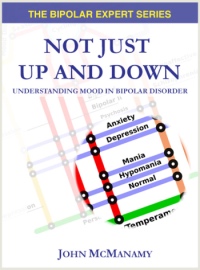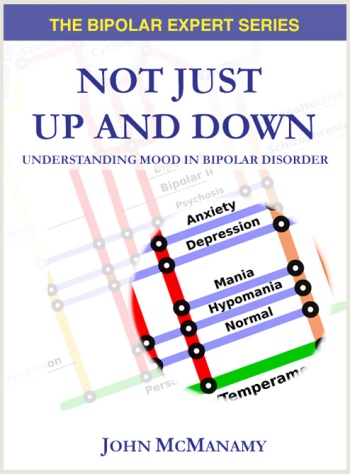Stronger Than We Seem
 |
We know our capabilities better than our clinicians.
|
Mental health recovery. Are we a population of victims?
In 1999, a past president of the American Psychological Association and Stanford University professor, Dr Albert Bandura, attacked his own peers: "The field of psychology is plagued by a chronic condition of negativity regarding human development and functioning," he said in a speech to the APA.
"People have the power to influence what they do and to make things happen," he went on to say. That he felt compelled to state the obvious speaks volumes for the misperceptions that pass for wisdom in the mental health profession.
My New Book!

Purchase now.
Marsha Langer Ellison PhD and Zlatka Russinova PhD of the Center for Psychiatric Rehabilitation at Boston University had this to say about their professional brethren:
Professionals in the mental health system, employers, and the general public often cast a dispirited and pessimistic eye to those who have a severe mental illness and yet aspire to careers as professionals or managers. People with psychiatric conditions often talk about how they have heard that they will 'never work again,' or that they must resign themselves to the simplest, least rewarding, and lowest paying work.
Even those who occupy the rehabilitative end of the field, the authors note, peg their clients into low wage and menial work, the three f's: "food, filth, and filing."
It's as if the professions are more depressed than their own patients. That need not be the case. Eventually, over the long term, most of us do improve. Our brains are not simply genetically hardwired to keep us in one state of mind the rest of our lives. New discoveries in brain science attest to the plasticity of the nervous system and the brain's unending capability to remap its seemingly limitless neuronal pathways. "All experience," writes journalist Jay Neugenboren in Transforming Madness, "can transform the ways in which the brain is constructed and functions."
Mr Neugeboren describes a graduation service at Boston University's Center for Psychiatric Rehabilitation:
As the graduates accept their degrees, and at a reception afterward, they talk about their years in state institutions, about the abuse and neglect they have suffered, and about how often they had given up hope. They talk, too - something I will hear repeatedly in the months to come - of how doctors told them once upon a time that they would never get well and would have to be institutionalized forever. They talk of how doctors told them that if, by some chance, they were ever able to live outside hospitals, they would have to lead marginal lives - lives in which they should never even consider the possibility of holding down full-time jobs, or of having children, or of raising families on their own.
During the previous ten months, these thirteen individuals - many of whom are married, have children, jobs, families, and homes of their own - have been attending Boston University ...
And Dr Ellison and Dr Russinova are a large part of that. Their remarks, quoted earlier, turn out to be the prelude to a study that portrays us at our very best.
The study surveyed 500 professionals and managers, all with serious mental illness, and showed that 73 percent were able to achieve full-time employment in occupations that ranged from nurses to lawyers and CEOs. An additional six percent were self-employed. Sixty-nine percent increased their responsibilities since starting their jobs, and more than 20 percent earned more than $50,000 a year.
"While past studies have focused primarily on dysfunction," according to Russinova, "this is the first study of its kind to open a window on a previously unexplored area."
What the numbers don't show, of course, are the untold tears and heartbreak in fighting back: Seventy-eight percent of the respondents had been hospitalized, 64 percent of them three or more times. Eighty-eight percent were taking medications, 62 percent needed to take breaks from work, and 53 percent attributed their success to their own drive and willpower. We don't know how many of those had been told they would never work again, but more than a third had qualified for social security benefits.
Not all of us, of course, are able to return to work. Sometimes, the only criteria of success we have is our own self-knowledge, of what we are up against and our own heroic efforts in fighting back. Mentally ill? Perhaps. Mentally tough? The rest of the world can't even begin to imagine.
Published 2000, reviewed Jan 4, 2011
 |
More articles on recovery. |




